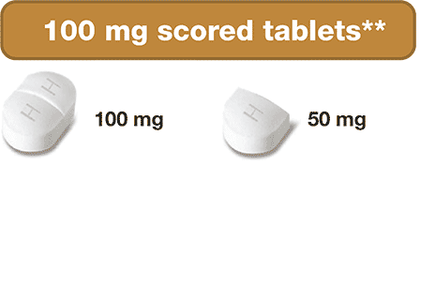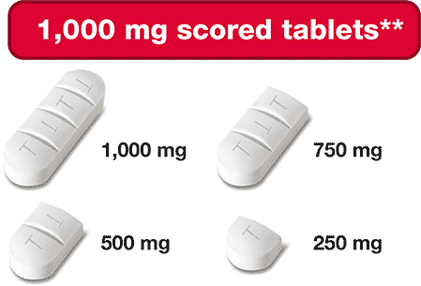

Siklos® Coverage
- Covered at PREFERRED STATUS at a top PBM (covering ~20% of commercial lives)
- Covered WITHOUT RESTRICTIONS on Tricare for patients 18 years & under
- Covered on State Medicaid programs in 37 states. See the Savings section for details


The First & Only Hydroxyurea-based treatment for patients 2 years and older with sickle cell anemia that offers a choice on how to take it
HU treatment, your way!

Only with Siklos® can you get the benefits of:

- Dissolvability
- Flexible Dosing & Administration
- Scored & Breakable tablets
- 100 mg & 1,000 mg Strengths
Siklos® is an FDA-approved prescription medication that reduces the frequency of painful crises and the need for blood transfusions in adults and children, 2 years of age and older, with sickle cell anemia with recurrent moderate to severe painful crises.
It is not known if Siklos® is safe and effective in children less than 2 years.
WHAT IS THE MOST IMPORTANT INFORMATION YOU SHOULD KNOW ABOUT Siklos®?
- SIKLOS can harm your unborn baby.
- For females taking SIKLOS who can become pregnant:
- You should talk with your healthcare provider about the risks of SIKLOS to your unborn baby.
- You should use effective birth control during treatment with SIKLOS and for at least 6 months after treatment with SIKLOS.
- Your healthcare provider will perform a pregnancy test before you start treatment with SIKLOS. Tell your healthcare provider right away if you become pregnant or think you may be pregnant.
- For males taking SIKLOS: SIKLOS can affect your sperm. If you have a female sexual partner who can become pregnant, you should use effective birth control during treatment with SIKLOS and for at least 6 months after treatment.
- SIKLOS may cause fertility problems in males. Talk to your healthcare provider if this is a concern for you.
Hydroxyurea – the "Gold Standard" Treatment

Hydroxyurea is a medicine that can reduce:
- complications from sickle cell disease
- painful crises
- episodes of acute chest syndrome
- blood transfusions
- hospital stays
Due to its benefits, hydroxyurea is considered the "gold standard" treatment for sickle cell disease.
How Siklos® Can Help

Siklos® helps keep red blood cells round and flexible so they can travel more easily through blood vessels. Exactly how Siklos®produces its beneficial effects in patients is uncertain.
The result is that Siklos® may reduce painful crises and other complications of SCD.

- Small*, Scored & Breakable Tablets
- 100 mg & 1,000 mg Strengths
- Flexible Dosing & administration
- No compounding needed
Does your child struggle with taking compounded hydroxyurea (HU) medication? Insurance no longer covering compounded prescription medicines?
Siklos® is the ONLY dissolvable hydroxyurea medication.
Do you struggle with taking your HU capsules?
Siklos® is the ONLY hydroxyurea medication that comes in a 1,000 mg strengths tablet and is the ONLY breakable/dissolvable hydroxyurea medication.
Switch to Siklos® :
- No compounding needed!
- Take fewer HU pills daily!
- The only hydroxyurea with flexible dosing & administration
- Swallow whole or split based on dose or dissolve in a small amount of water
Talk with your doctor to see if Siklos® could be right for you or your child!




HU treatment, your way!
Taking Siklos®
2 ways Siklos® can be taken:
- Dissolve in a small amount of water in a teaspoon immediately before taking
- Swallow the tablet whole with a glass of water
- Scored tablets can be broken into smaller pieces if needed
It is important to take Siklos® once every day, at the same time each day, with a glass of water to get the most benefit from your hydroxyurea treatment.
Siklos® is the ONLY hydroxyurea that offers a choice on how you or your child can take Siklos®. Dissolve Siklos® for your young child and as your child grows, he or she can take Siklos® by swallowing it whole. Siklos® can even be broken into smaller pieces to help with this.
View & print the Instructions for Taking Siklos®
Ver e imprimir el Instrucciones para tomar Siklos®
Siklos® tablets must be handled with care. Follow applicable special handling and disposal procedures.
Do not take Siklos® if you are allergic to hydroxyurea or any of the ingredients in Siklos®
What is Sickle Cell Disease?
Sickle Cell Anemia (SCA) is one of a group of inherited disorders known as sickle cell disease (SCD).
Sickle cell disease affects red blood cells.
Normal red blood cells are round and flexible and can move easily through blood vessels.
For people with SCD, their red blood cells become stiff and curved (or shaped like a “sickle”), causing these cells to stick to blood vessels and block blood flow.
The blockages can cause crippling pain and other complications that can lead to hospitalization.
Siklos® Savings
Siklos® is covered on many State Medicaid programs and has expanded commercial coverage!
If you have commercial insurance, there are 2 easy ways to pay as little as $0* for a Siklos® prescription!
Medunik USA also offers savings programs for patients that do not have commercial insurance or if their commercial insurance does not cover Siklos®.
INDICATION AND IMPORTANT SAFETY INFORMATION
IMPORTANT SAFETY INFORMATION
WARNING: LOW BLOOD CELL COUNT and CANCER
See Full Prescribing Information for complete Boxed Warning.Low blood cell counts are common with SIKLOS, including low red blood cells, white blood cells, and platelets, and can be severe and life threatening. If your white blood cell count becomes very low, you are at increased risk for infection. Your healthcare provider will check your blood cell counts before and every 2 weeks during treatment with SIKLOS. Your healthcare provider may change your dose or tell you to stop taking SIKLOS if you have low blood cell counts. Tell your healthcare provider right away if you get any of the following symptoms: fever or chills; shortness of breath; body aches; unusual headache; feeling very tired; bleeding or unexplained bruising.
Cancer. Some people have developed cancer, such as leukemia and skin cancer, after taking SIKLOS for a long time. Your healthcare provider will check you for cancer. You should protect your skin from the sun using sunblock, hats, and sun-protective clothing.
WHAT IS THE MOST IMPORTANT INFORMATION YOU SHOULD KNOW ABOUT SIKLOS?
- SIKLOS can harm your unborn baby.
- For females taking SIKLOS who can become pregnant:
- You should talk with your healthcare provider about the risks of SIKLOS to your unborn baby.
- You should use effective birth control during treatment with SIKLOS and for at least 6 months after treatment with SIKLOS.
- Your healthcare provider will perform a pregnancy test before you start treatment with SIKLOS. Tell your healthcare provider right away if you become pregnant or think you may be pregnant.
- For males taking SIKLOS: SIKLOS can affect your sperm. If you have a female sexual partner who can become pregnant, you should use effective birth control during treatment with SIKLOS and for at least 6 months after treatment.
- SIKLOS may cause fertility problems in males. Talk to your healthcare provider if this is a concern for you.
WHO SHOULD NOT TAKE SIKLOS
Do not take SIKLOS if you are allergic to hydroxyurea or any of the ingredients in SIKLOS. See the Medication Guide for a list of the ingredients in SIKLOS.
WHAT SHOULD YOU TELL YOUR HEALTH CARE PROVIDER BEFORE TAKING SIKLOS?
Tell your healthcare provider about all of your medical conditions, including if you:
- have kidney problems or are receiving hemodialysis
- have liver problems
- have human immunodeficiency virus (HIV) or take HIV medicines. Taking SIKLOS with certain HIV medicines can cause serious reactions and may lead to death.
- have increased levels of uric acid in your blood (hyperuricemia)
- have a history of receiving interferon therapy or are currently receiving interferon therapy
- plan to receive any vaccinations. You should not receive “live vaccines” during treatment with SIKLOS.
- are pregnant or plan to become pregnant. See "What is the most important information I should know about SIKLOS?"
- are breastfeeding or plan to breastfeed. It is not known if SIKLOS can pass into your breast milk. Do not breastfeed during treatment with SIKLOS.
- are using a continuous glucose monitor (CGM) to test your blood glucose. Talk to the healthcare provider that prescribed your CGM about whether it is safe to use while you are taking SIKLOS.
- Tell your healthcare provider about all the medicines you take, including prescription and over-the-counter medicines, vitamins, and herbal supplements.
WHAT ARE THE POSSIBLE SIDE EFFECTS OF SIKLOS?
SIKLOS may cause serious side effects, including:
See "What is the most important information I should know about SIKLOS"
- Skin ulcers, including leg ulcers, and death of skin tissue (gangrene) have happened in people who take SIKLOS. This has happened most often in people who receive interferon therapy or have a history of interferon therapy. Your healthcare provider will decrease your dose or stop treatment with SIKLOS if you develop any skin ulcers.
- Enlarged red blood cells (macrocytosis). Macrocytosis is common in people who take SIKLOS and can make it difficult to detect a decrease of folic acid. Your healthcare provider may prescribe a folic acid supplement for you.
- Hemolytic Anemia, the fast breakdown of red blood cells, has happened in people who take SIKLOS. Tell your healthcare provider I you develop yellowing of your skin (jaundice) or blood in your urine. Your healthcare provider may do blood tests if you have persistent or worsening anemia not related to sickle cell anemia.
The most common side effects of SIKLOS in children include: infections and low white blood cells.
The most common side effects of SIKLOS in adults include: infections, headache, and dry skin.
These are not all the possible side effects of SIKLOS.
You are encouraged to report negative side effects of prescription drugs to the FDA at fda.gov/medwatch, or 1-800-FDA-1088.
Please read the Full Prescribing Information, including Boxed Warning, Medication Guide and Instructions for Use, at SIKLOSusa.com.
SIKLOS is a prescription medicine that is used to reduce the frequency of painful crises and reduce the need for blood transfusions in adults and children, 2 years of age and older, with sickle cell anemia with recurrent moderate to severe painful crises. It is not known if SIKLOS is safe and effective in children less than 2 years of age.
INDICATION AND IMPORTANT SAFETY INFORMATION
IMPORTANT SAFETY INFORMATION
WARNING: LOW BLOOD CELL COUNT and CANCER
See Full Prescribing Information for complete Boxed Warning.Low blood cell counts are common with SIKLOS, including low red blood cells, white blood cells, and platelets, and can be severe and life threatening. If your white blood cell count becomes very low, you are at increased risk for infection. Your healthcare provider will check your blood cell counts before and every 2 weeks during treatment with SIKLOS. Your healthcare provider may change your dose or tell you to stop taking SIKLOS if you have low blood cell counts. Tell your healthcare provider right away if you get any of the following symptoms: fever or chills; shortness of breath; body aches; unusual headache; feeling very tired; bleeding or unexplained bruising.
Cancer. Some people have developed cancer, such as leukemia and skin cancer, after taking SIKLOS for a long time. Your healthcare provider will check you for cancer. You should protect your skin from the sun using sunblock, hats, and sun-protective clothing.
WHAT IS THE MOST IMPORTANT INFORMATION YOU SHOULD KNOW ABOUT SIKLOS?
- SIKLOS can harm your unborn baby.
- For females taking SIKLOS who can become pregnant:
- You should talk with your healthcare provider about the risks of SIKLOS to your unborn baby.
- You should use effective birth control during treatment with SIKLOS and for at least 6 months after treatment with SIKLOS.
- Your healthcare provider will perform a pregnancy test before you start treatment with SIKLOS. Tell your healthcare provider right away if you become pregnant or think you may be pregnant.
- For males taking SIKLOS: SIKLOS can affect your sperm. If you have a female sexual partner who can become pregnant, you should use effective birth control during treatment with SIKLOS and for at least 6 months after treatment.
- SIKLOS may cause fertility problems in males. Talk to your healthcare provider if this is a concern for you.
WHO SHOULD NOT TAKE SIKLOS
Do not take SIKLOS if you are allergic to hydroxyurea or any of the ingredients in SIKLOS. See the Medication Guide for a list of the ingredients in SIKLOS.
WHAT SHOULD YOU TELL YOUR HEALTH CARE PROVIDER BEFORE TAKING SIKLOS?
Tell your healthcare provider about all of your medical conditions, including if you:
- have kidney problems or are receiving hemodialysis
- have liver problems
- have human immunodeficiency virus (HIV) or take HIV medicines. Taking SIKLOS with certain HIV medicines can cause serious reactions and may lead to death.
- have increased levels of uric acid in your blood (hyperuricemia)
- have a history of receiving interferon therapy or are currently receiving interferon therapy
- plan to receive any vaccinations. You should not receive “live vaccines” during treatment with SIKLOS.
- are pregnant or plan to become pregnant. See "What is the most important information I should know about SIKLOS?"
- are breastfeeding or plan to breastfeed. It is not known if SIKLOS can pass into your breast milk. Do not breastfeed during treatment with SIKLOS.
- are using a continuous glucose monitor (CGM) to test your blood glucose. Talk to the healthcare provider that prescribed your CGM about whether it is safe to use while you are taking SIKLOS.
- Tell your healthcare provider about all the medicines you take, including prescription and over-the-counter medicines, vitamins, and herbal supplements.
WHAT ARE THE POSSIBLE SIDE EFFECTS OF SIKLOS?
SIKLOS may cause serious side effects, including:
See "What is the most important information I should know about SIKLOS"
- Skin ulcers, including leg ulcers, and death of skin tissue (gangrene) have happened in people who take SIKLOS. This has happened most often in people who receive interferon therapy or have a history of interferon therapy. Your healthcare provider will decrease your dose or stop treatment with SIKLOS if you develop any skin ulcers.
- Enlarged red blood cells (macrocytosis). Macrocytosis is common in people who take SIKLOS and can make it difficult to detect a decrease of folic acid. Your healthcare provider may prescribe a folic acid supplement for you.
- Hemolytic Anemia, the fast breakdown of red blood cells, has happened in people who take SIKLOS. Tell your healthcare provider I you develop yellowing of your skin (jaundice) or blood in your urine. Your healthcare provider may do blood tests if you have persistent or worsening anemia not related to sickle cell anemia.
The most common side effects of SIKLOS in children include: infections and low white blood cells.
The most common side effects of SIKLOS in adults include: infections, headache, and dry skin.
These are not all the possible side effects of SIKLOS.
You are encouraged to report negative side effects of prescription drugs to the FDA at fda.gov/medwatch, or 1-800-FDA-1088.
Please read the Full Prescribing Information, including Boxed Warning, Medication Guide and Instructions for Use, at SIKLOSusa.com.
SIKLOS is a prescription medicine that is used to reduce the frequency of painful crises and reduce the need for blood transfusions in adults and children, 2 years of age and older, with sickle cell anemia with recurrent moderate to severe painful crises. It is not known if SIKLOS is safe and effective in children less than 2 years of age.
INDICATION AND IMPORTANT SAFETY INFORMATION
IMPORTANT SAFETY INFORMATION
WARNING: LOW BLOOD CELL COUNT and CANCER
See Full Prescribing Information for complete Boxed Warning.Low blood cell counts are common with SIKLOS, including low red blood cells, white blood cells, and platelets, and can be severe and life threatening. If your white blood cell count becomes very low, you are at increased risk for infection. Your healthcare provider will check your blood cell counts before and every 2 weeks during treatment with SIKLOS. Your healthcare provider may change your dose or tell you to stop taking SIKLOS if you have low blood cell counts. Tell your healthcare provider right away if you get any of the following symptoms: fever or chills; shortness of breath; body aches; unusual headache; feeling very tired; bleeding or unexplained bruising.
Cancer. Some people have developed cancer, such as leukemia and skin cancer, after taking SIKLOS for a long time. Your healthcare provider will check you for cancer. You should protect your skin from the sun using sunblock, hats, and sun-protective clothing.
SIKLOS is a prescription medicine that is used to reduce the frequency of painful crises and reduce the need for blood transfusions in adults and children, 2 years of age and older, with sickle cell anemia with recurrent moderate to severe painful crises. It is not known if SIKLOS is safe and effective in children less than 2 years of age.
